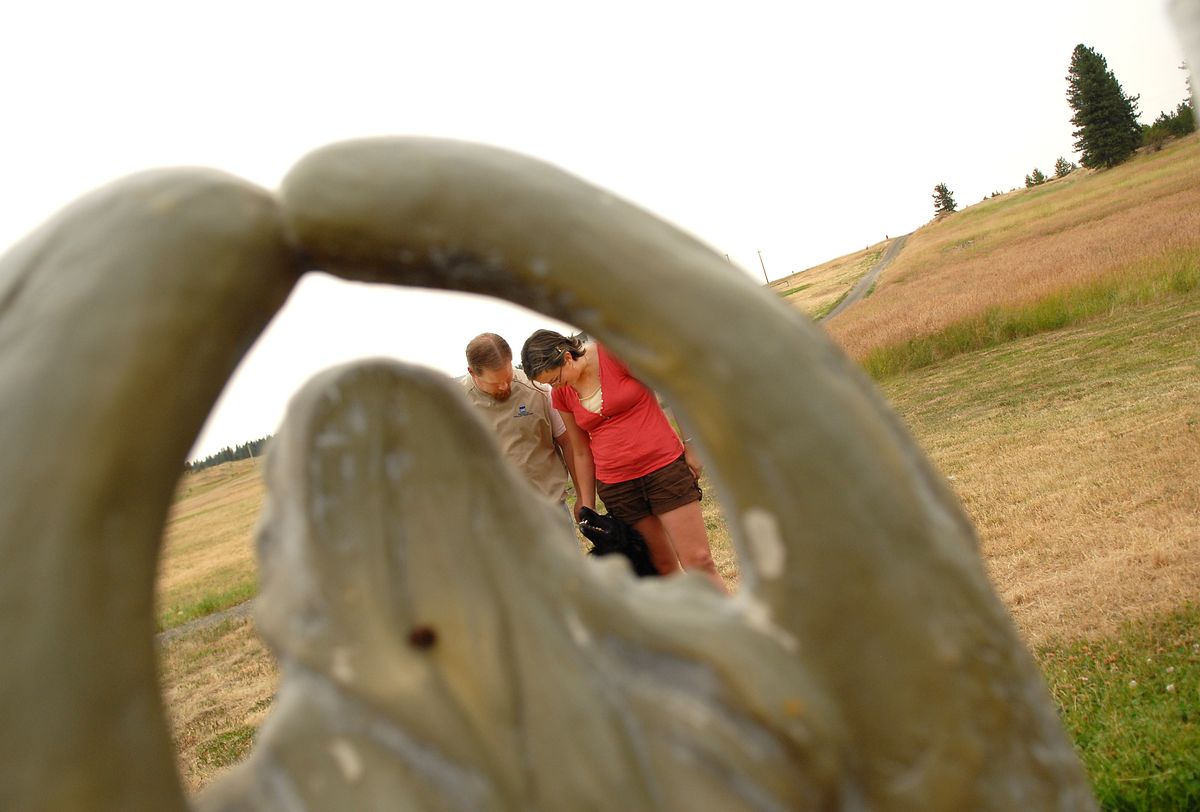A healing mission

Isaac Lytle was just weeks shy of his fourth birthday and responding well to therapy. His parents – who were working with him 25 to 40 hours a week and had converted their basement into a therapy room – thought their autistic son had a promising future.
He had come out of what they called the “dark months,” in which he would look right through them, not speak and flap his hands incessantly. He had begun to tell stories, to play with other children, and to gaze lovingly into his parents’ eyes.
On Feb. 8, 2007, Holly and Reed Lytle tucked their blue-eyed, towheaded boy into bed in their West Plains home and kissed him goodnight.
He died in his sleep from an undetected genetic heart defect unrelated to his autism.
“One of the things he started saying right before he died was, ‘Love you,’ ” Holly Lytle said. “Probably because he heard it so much.”
Channeling their grief into a desire to help other autistic children, the Lytles incorporated a nonprofit foundation in the year following Isaac’s death. The ISAAC Foundation provides financial support for therapy that autistic children in this region need, but that insurance companies frequently don’t cover, the Lytles said. ISAAC stands for Intervention Services Assistance for Autistic Children.
The foundation has raised more than $50,000 and made 17 grants ranging from $500 to $2,500. Applications are judged anonymously by a board of directors on the basis of need. Grants can become annual, as autism is frequently a lifelong struggle, said Holly Lytle, president and treasurer.
“It was a phenomenal gift,” said Melissa Hoefs of the $1,500 therapeutic tricycle her son Joshua received through the foundation. Joshua, 7, has autism as well as spina bifida; he has limited mobility in his legs. On the specially-designed tricycle, Hoefs said, Joshua becomes more interested in his environment and interacts more with other children.
“With autism, they’re so much inside of themselves,” Hoefs said. “He doesn’t fully engage with everything that’s going on, whereas on the bike, he does. He feels the wind in his face. It just totally brought him out of that little area that he normally stays within.”
Washington has no health insurance mandate for autism spectrum disorders, but on Jan. 1 it became illegal in the state to discriminate against people with autism or mental illness, according to the Autism Society of America’s state-by-state score card. Idaho has no health insurance mandate to cover autism therapy, the score card said.
State data reported to the Autism Society counted 5,191 autistic children ages 3 to 21 in Washington in 2006-’07, up from 1,684 in 1999-’00. Idaho reported 1,071, in 2006-’07, up from 319 in 1999-’00.
Autism is a complex developmental disability that typically appears within the first three years and affects a person’s ability to communicate and interact with others. Autistic children frequently don’t speak or begin speaking late. They sometimes display repetitive motions, such as hand-flapping, and frequently have little or no eye contact with others. Many don’t show an interest in playing with other children or exhibit a persistent fixation on certain objects.
The Autism Society reports 1.5 million Americans living with the disorder and estimates the lifetime cost of caring for an autistic child to be as high as $5 million. Studies show that early diagnosis and therapy can lead to significant improvements.
That was the case for Isaac, the Lytles said. The boy with the cherubic grin deteriorated rapidly following his diagnosis at age 18 months. He didn’t speak, wouldn’t look directly at people, and flapped his hands incessantly, his parents said.
Holly Lytle left her full-time paralegal job and began working part-time from home while devoting more than 25 hours a week to her son’s therapy. She and her husband turned Isaac’s repetitive motions or obsessive behaviors into interactive games using techniques they learned from certified therapist Gene Christian, of Spokane.
If Isaac repeatedly opened and closed a door, his mother would be on the other side saying “peek-a-boo!” If he obsessed about a train set, she’d mimic his actions until he became intrigued with what she was doing. Eventually, their boy began to return to them, the Lytles said. He began to interact more with children at preschool. He began speaking, using words in the correct context. He became much more emotionally attached to his family.
The Lytles would like to see other autistic children have the same opportunities. Despite their loss, the Lytles take some comfort in their feeling that setting up the foundation is what their son would have wanted them to do in his memory.
“So much is being accomplished in his name through the ISAAC Foundation, he is still being remembered,” Holly Lytle said.
Her voice caught. “I have to think he is probably in heaven looking down and is happy to know that we’re doing this.”